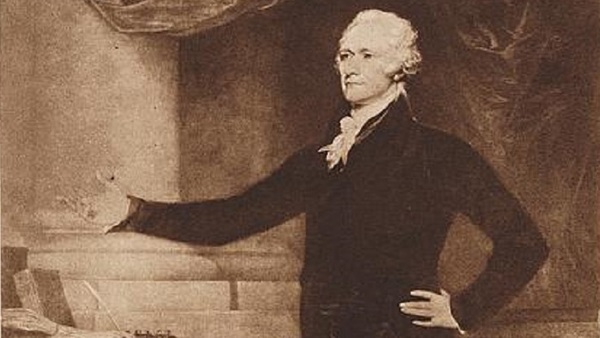“There is no position which depends on clearer principles, than that every act of a delegated authority, contrary to the tenor of the commission under which it is exercised, is void. No Legislative act, therefore, contrary to the Constitution, can be valid. To deny this, would be to affirm, that the deputy is greater than his principal; that the servant is above his master; that the Representatives of the People are superior to the People themselves; that men acting by virtue of powers, may do not only what their powers do not authorize, but what they forbid. If it be said that the Legislative body are themselves the constitutional judges of their own powers, and that the construction they put upon them is conclusive upon the other departments, it may be answered, that this cannot be the natural presumption, where it is not to be collected from any particular provisions in the Constitution. It is not otherwise to be supposed, that the Constitution could intend to enable the Representatives of the People to substitute their will to that of their constituents. It is far more rational to suppose, that the Courts were designed to be an intermediate body between the People and the Legislature, in order, among other things, to keep the latter within the limits assigned to their authority. The interpretation of the laws is the proper and peculiar province of the Courts. A Constitution is, in fact, and must be regarded by the Judges, as a fundamental law. It therefore belongs to them to ascertain its meaning, as well as the meaning of any particular Act proceeding from the Legislative body. If there should happen to be an irreconcilable variance between the two, that which has the superior obligation and validity ought, of course, to be preferred; or in other words, the Constitution ought to be preferred to the statute, the intention of the People to the intention of their agents. Nor does this conclusion by any means suppose a superiority of the Judicial to the Legislative power. It only supposes that the power of the People is superior to both; and that where the will of the Legislature, declared in its statutes, stands in opposition to that of the People, declared in the Constitution, the Judges ought to be governed by the latter rather than the former. They ought to regulate their decisions by the fundamental laws, rather than by those which are not fundamental. […] whenever a particular statute contravenes the Constitution, it will be the duty of the Judicial tribunals to adhere to the latter and disregard the former.” – Alexander Hamilton, The Federalist Papers #78.
- Ad Civil Defense ManualThe Civil Defense Manual... The A to Z of Survival. Look what in it... https://civildefensemanual.com/whats-in-the-civil-defense-manual/
- Ad SOURCE FOR IVERMECTIN / HCQ, ANTIBIOTICS, ALL REGULAR MEDS“Mygenericstore” is a well-established pharmacy service that deals primarily with generic medicines produced by quality-assured manufacturers from developing countries.










